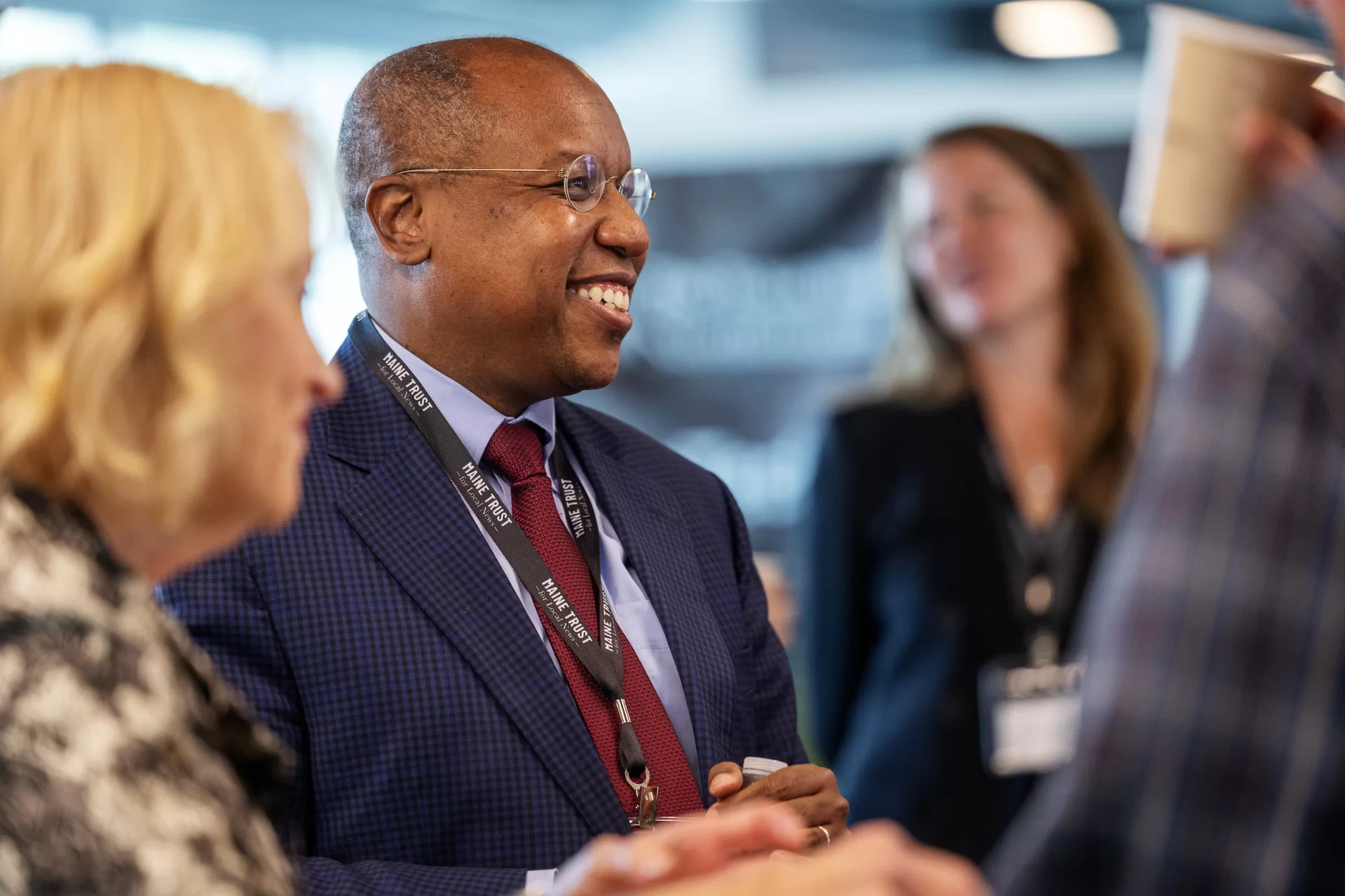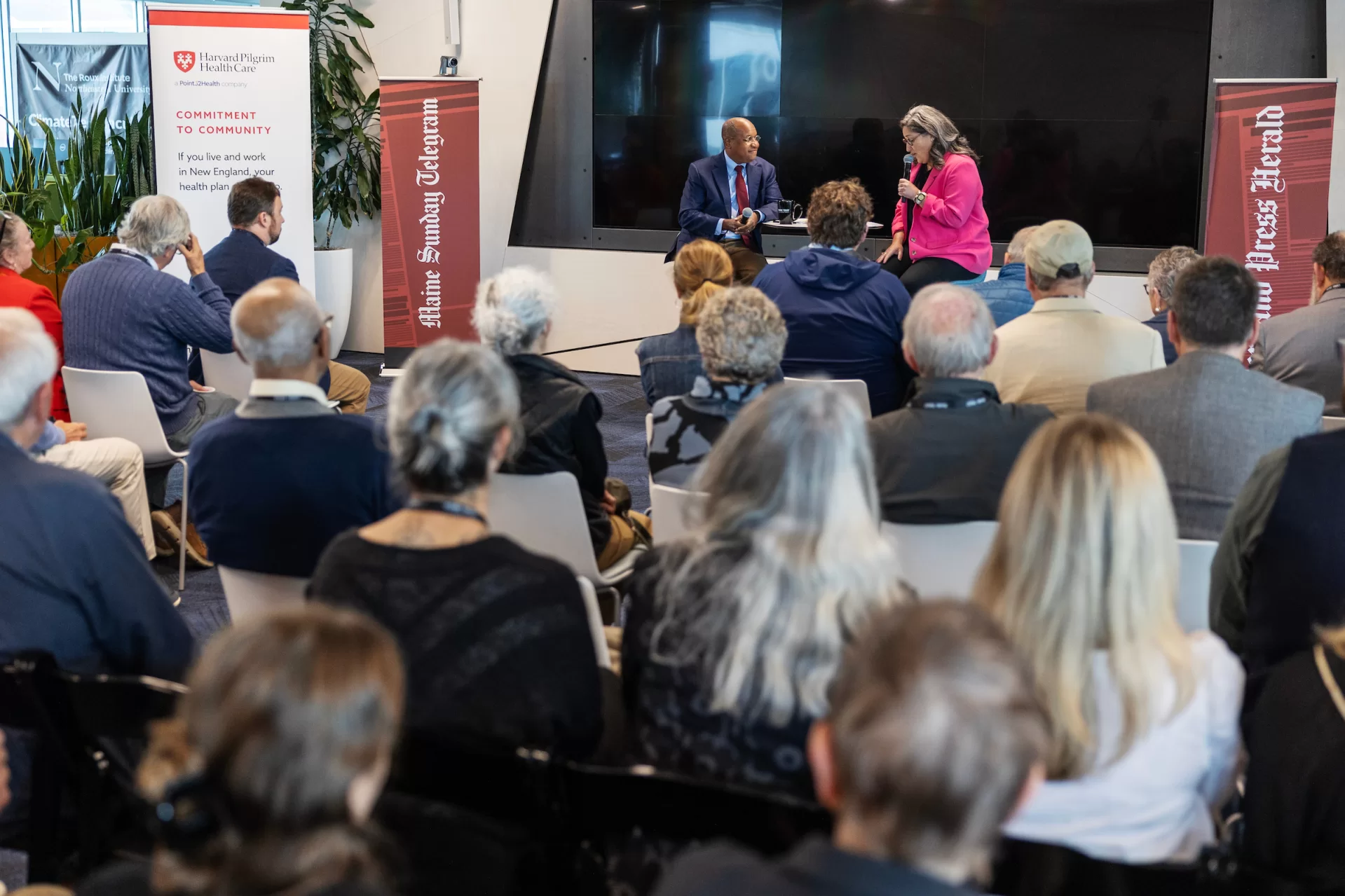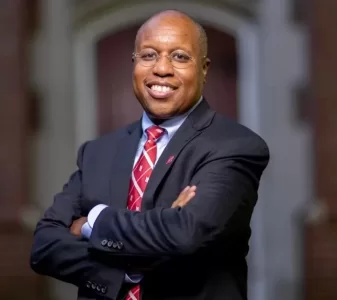
This week Bates President Garry W. Jenkins joined Stefanie Manning, Maine Trust for Local News’ managing director, for a public conversation about his leadership and journey to Bates.
Held at the Roux Institute in Portland, the Sept. 17 conversation was the latest installment in the Trust’s Open Door series, which invites local business and community leaders for conversations about their work, including challenges they’ve faced and lessons they’ve learned along the way. Lewiston Mayor Carl Sheline and a number of Bates alumni were among the more than 100 attendees.

One theme of discussion was the value of education for Jenkins, both personally and universally. He spoke of his early years in the public school system, and his experiences at the private liberal arts school he attended, Haverford College, as well as the large public universities he worked at prior to coming to Bates in 2023. He described the powerful, formative impact growing up with parents who were educators themselves had on him, and reflected that his own experience steered him toward Bates, a place that quickly felt like home to him, and which has given him a sense of optimism.
“The students are kind,” Jenkins said. “They’re thoughtful. They are interested in making a difference in whatever way that means for them, and they’re open to that exploration. That makes me excited for the future.”
Watch the full conversation embedded below.
During an open Q&A, an audience member asked how Bates is meeting a new reality, when the value of higher education is being called into question by some in both government and the public. “The public seems to be much less supportive, much more skeptical, [and] has much less regard for colleges and universities than was the case previously,” the attendee said before asking: How is Bates handling this new reality?
Jenkins acknowledged that shift in public perception. “To be honest, for a long time, the college degree, its importance, the value, was almost taken as given,” he said. That value hasn’t changed, he said, but it can’t be taken for granted that others see it that way. Bates is trying to “communicate more and communicate better about the value that we add,” Jenkins said.

Bates has a mission to educate the whole person and prepare students to be leaders, he said. “College is not about teaching people what to think,” Jenkins said. “It’s about teaching people how to think. That’s really important. I think we’ve lost the thread a little bit on that.”
The public needs to be aware of these myriad benefits of higher education, Jenkins explained, and this can only be achieved collectively. None of these perceptions developed overnight, he noted, citing the steady erosion of support for public institutions, including state funding, over the course of his own career.
“Boy has that changed over the past, what, 40 years, 50 years? Right?” Jenkins said. Immediately prior to coming to Bates, he served as the dean of the University of Minnesota Law School. Looking at how the percentage of funding that came from the state 40 years ago compared to how it is now represents a dramatically different scenario, he said. “When I left the University of Minnesota Law School, the percent [of school funding] from the state was in single digits. So this is part of a much longer narrative, and we’ve got to really dig in and work together to change that, but it’s not an overnight type of solution.”
“This is going to require citizen to citizen action,” Jenkins told the audience. “And so what we can do is we can enlist others to join us in this fight and in talking about the value, the importance that college had to you, to your life, to your family, and really tell that story.” He encouraged attendees to “talk to our politicians, talk to your neighbors,” to help bring about a cultural shift. “Because that’s what we need.”
Faculty Featured

Garry W. Jenkins
President and Professor of Politics

